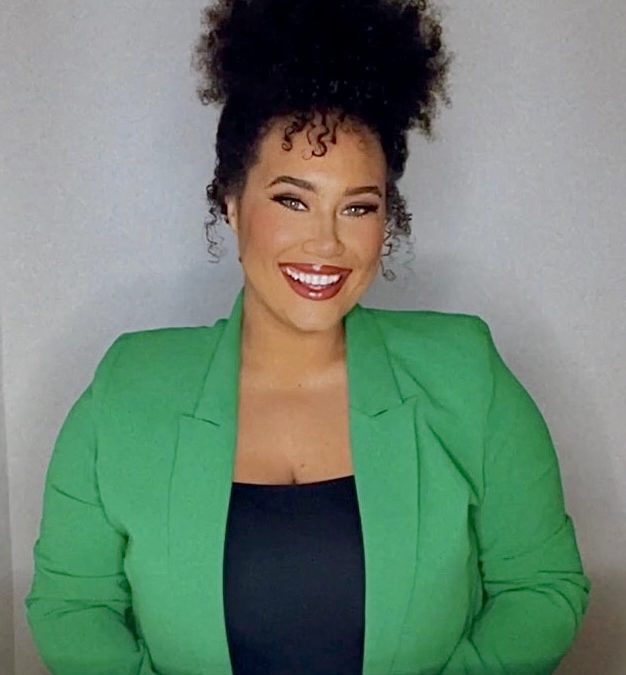We are excited to celebrate Black History month by highlighting some of our inspiring Black Science Cheerleaders.
First in this series is Kayla, former 49ers Gold Rush Cheerleader and current choreographer for many professional cheer teams, such as the Golden State Warriors Dance Team and the Raiderettes. This is also perfect timing to catch up with her, because she was just promoted to Clinical Director. Congratulations, Kayla!

What does it mean to you to be an African American in your STEM career?
As a young African American psychologist, it is incredibly exciting to be able to represent diversity in the role of a Clinical Director. A Clinical Director is a psychologist who supervises clinical staff, oversees clinical treatment decisions and manages a treatment facility, overall. Clinical Director is one of the highest positions a psychologist can obtain in a treatment facility. It is very common for Clinical Directors to be predominately white and middle-aged. Naturally, as a person of color, I’ve thought about how it may take me longer to achieve my dream of being a Clinical Director, due to the disadvantages I face of not fitting the stereotype of a Clinical Director, coupled with the fact that there are minimal Clinical Director positions available in the world. I am therefore honored and thrilled to be a Clinical Director and serve as a role model for people of color in leadership positions.
Is there a Black mentor or role model who had a significant impact on your life or that you particularly look up to?
My aunt is a Black therapist, and she has made such a positive impact in my life. Growing up, I noticed how hard my aunt worked in graduate school to pursue psychology, and I therefore naturally developed an interest in psychology. She really inspired me and laid a foundation of the importance of education. Now as a clinician, I am so grateful that I have someone in my family to talk to who can relate to my life experiences in the mental health field.
What would you want to share with other Black women who are interested in following in your footsteps?
The steps I took in becoming a clinical sports psychologist are: obtaining my bachelors of arts degree (4 years), master’s degree in Sport Psychology (2 years) and doctorate in Clinical psychology (6 years). When it comes to becoming an NFL Cheerleader, one of the best things I did for myself was hiring a team of experts to help me feel my best on audition day. I hired a nutritionist, personal trainer, and dance coach. I made a weekly schedule for myself and met with each of them throughout the week. In doing so, I noticed a big transformation in my confidence, both mentally and physically. Something I would like to tell other Black women pursuing psychology or professional cheerleading is to keep shining your light everywhere you go and never dim your light to fit in. Believing in yourself is one of the greatest energies and mindsets that you can harness and it will take you very far in life.
Are they any communities/groups that had an impact on you? Do you have any resources that you think others should know about?
One of my favorite doctoral internships entailed doing sport psychology work with an all-Black youth cheer and football program in Oakland, CA. This was such a unique experience because it intertwined everything that I am passionate about. I was able to provide sport psychology techniques, individual therapy, choreography, facilitate team building activities and work with football players and dancers. Most importantly, I was able to be a role model for Black youth cheerleaders and connect with them on a deeper level.
Keep up the great work, Kayla!

